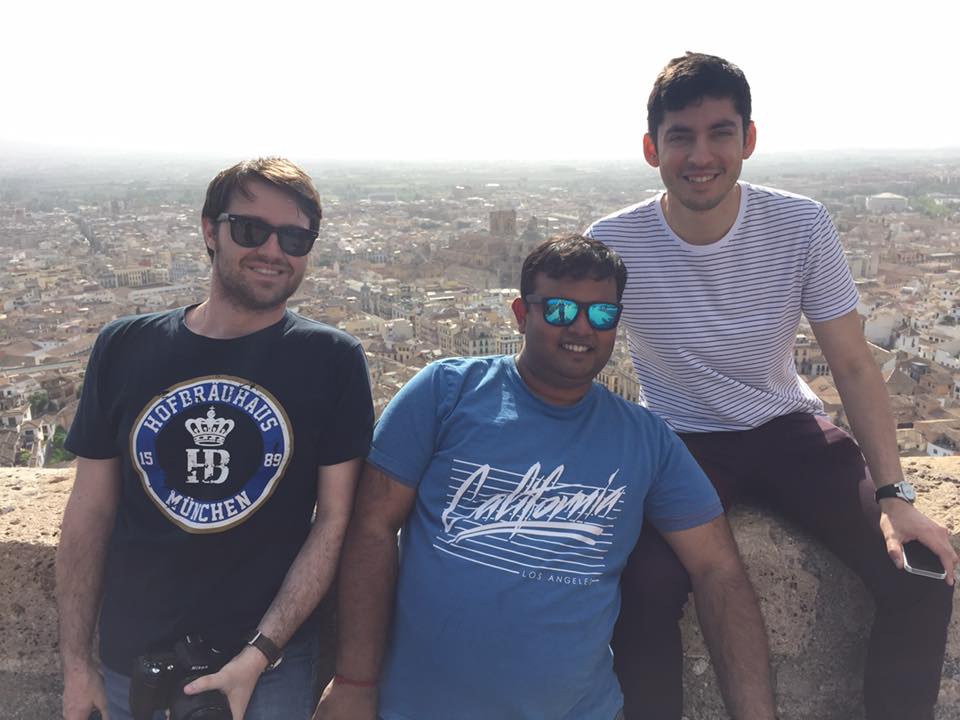Effective cross-cultural management: my week in Granada
23/06/2017

Our first day of our cross-cultural management module started with a language and cultural course. We got to understand what the Spanish culture was all about and the traditions they have like the fiestas and the tomato festival. It was interesting and exciting and bought another dimension to the Spanish culture, particularly for myself, coming from an Asian background.
Seeing the Europeans going about their own traditions and culture was very insightful. I thought this particular class was very interesting in the sense that the teacher actually took the time to explain what each festival was all about and the meanings behind them. Sometimes we celebrate festivals without knowing the meaning behind them so that actually helped us appreciate the culture even more.
The module kicked off discussions about effective cross cultural management in today’s world. We need to think about what culture is all about and what ideas are connected with it.
On the second day, Professor Michael Dickmann began teaching our Effective Cross Cultural Management module. To introduce the module he allowed us to present our different countries. I delivered a talk about Singapore based on three key areas. One of the areas was about what foreign nationals don’t understand about your culture. That allowed me to tell my classmates what expats don’t get about my country. They learnt something new. It was a great opportunity to exchange ideas and we learnt a lot from each other about our home countries (Singapore, Italy, Chile, Britain, and Nigeria).
This mix actually allowed us to understand each other’s cultures and learn more about them. It was quite fascinating for me because sometimes there is a level of ignorance towards finding out what other people’s cultures are all about. This module actually helped me to understand the issues that different cultures are facing.
In the afternoon, we went to Alhambra, the UNESCO World Heritage Site. I have never been to a UNESCO World Heritage Site as beautifully built as this one. I have been to several UNESCO World Heritage Sites but seeing a very Muslim kind of building in Spain was quite remarkable. The visit allowed me to understand how this Muslim influence came into Spain.
The trip has certainly strengthened my relationships with my classmates, particularly because we were able to exchange ideas, learn more about each other’s cultures and to identify the connections between our cultures. We had to complete a group task which was about national culture and the Hofstede and Trompenaars framework of cultural dimensions.
From my own experience, it has definitely enhanced my understanding. You need to appreciate other people’s cultures when you go out into the working world and to work in different environments in the future.
We are always moving around from one place to another so we must be able to change ourselves to suit the environment that we are in and we should actually be open to change and also able to accept cultural differences. You cannot exist within your own four walls so I think this module has certainly prepared me for the kind of environment where I need to be able to understand other people’s cultures and to celebrate the differences. This is very important because if you’re not able to celebrate the differences and also go along with them, it will create a lot of conflict in the future.
I see myself working in different countries in the future so that’s why I picked this module. I think it’s very important for me to develop professionally and to have this cultural intelligence so this module has certainly provided me with the cultural awareness and knowledge that I’ll need to work successfully in the future.
Categories & Tags:
Leave a comment on this post:
You might also like…
From classroom to cockpit: What’s next after Cranfield
The Air Transport Management MSc isn’t just about learning theory — it’s about preparing for a career in the aviation industry. Adit shares his dream job, insights from classmates, and advice for prospective students. ...
Setting up a shared group folder in a reference manager
Many of our students are now busy working on their group projects. One easy way to share references amongst a group is to set up group folders in a reference manager like Mendeley or Zotero. ...
Company codes – CUSIP, SEDOL, ISIN…. What do they mean and how can you use them in our Library resources?
As you use our many finance resources, you will probably notice unique company identifiers which may be codes or symbols. It is worth spending some time getting to know what these are and which resources ...
Supporting careers in defence through specialist education
As a materials engineer by background, I have always been drawn to fields where technical expertise directly shapes real‑world outcomes. Few sectors exemplify this better than defence. Engineering careers in defence sit at the ...
What being a woman in STEM means to me
STEM is both a way of thinking and a practical toolkit. It sharpens reasoning and equips us to turn ideas into solutions with measurable impact. For me, STEM has never been only about acquiring ...
A woman’s experience in environmental science within defence
When I stepped into the gates of the Defence Academy it was the 30th September 2019. I did not know at the time that this would be the beginning of a long journey as ...






